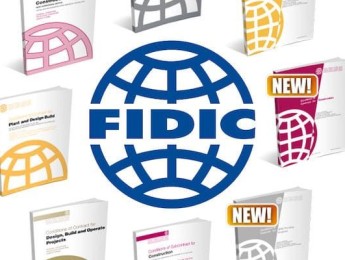FIDIC, the International Federation of Consulting Engineers, has established a set of widely used standard forms of contracts for the construction industry, known as FIDIC contracts.
This course is designed to introduce participants to the fundamentals of FIDIC contracts, widely recognised as the standard forms of contracts in the construction industry. The course covers the essential principles, roles, and responsibilities outlined in FIDIC contracts, as well as the basic processes involved in contract administration. Participants will gain foundational knowledge to help them understand how FIDIC contracts are structured and applied in construction projects. The course is ideal for those who are new to contract management or construction projects and want to build a solid understanding of FIDIC principles.
Upon completion of this course, participants will be able to:
- Understand the purpose and importance of FIDIC contracts in the construction industry.
- Identify the different types of FIDIC contracts and their basic applications in various project scenarios.
- Comprehend the fundamental roles and responsibilities of key parties, including the employer, contractor, and engineer.
- Learn the basics of contract documentation, including drawings, specifications, and bills of quantities (BoQ).
- Gain an introductory understanding of risk management, dispute resolution mechanisms, and financial procedures in FIDIC contracts.
- Apply FIDIC principles through simple case studies and practical exercises.
This course is tailored for individuals who are new to FIDIC contracts or have limited experience in contract management. It is ideal for:
- Entry-level Engineers
- Junior Project Managers
- Assistant Quantity Surveyors
- Trainee Construction Managers
- Administrative or support staff involved in construction projects
- Professionals transitioning into construction project roles
This course utilizes a variety of interactive and engaging learning methods to ensure participants grasp the core concepts of FIDIC contracts. Key methodologies include:
- Lectures and Presentations: Clear and concise presentations to explain the structure and purpose of FIDIC contracts.
- Interactive Discussions: Group discussions to encourage participants to share ideas and clarify doubts.
- Practical Exercises: Hands-on exercises to review simple contract templates, identify key clauses, and understand their applications.
- Case Studies: Basic case studies to illustrate how FIDIC principles are applied in real-world scenarios.
- Q&A Sessions: Open sessions to address specific questions and challenges faced by participants.
Day 5 of each course is reserved for a Q&A session, which may occur off-site. For 10-day courses, this also applies to day 10
Section 1: Introduction to Construction Contracts
- Overview of the construction industry and the importance of contracts.
- Introduction to major contract types: NEC, FIDIC, ICC, ACE, and JCT.
- Basic contract types explained:
- Lump sum contracts
- Cost-plus contracts
- Time and material contracts
- Key differences between these contract types and their use cases.
Section 2: Contract Documentation
- Understanding the purpose of contract drawings, specifications, and BoQ.
- Overview of pre-contract and post-contract documentation.
- Introduction to change orders and variations.
- Basics of Request for Information (RFI) processes.
- Introduction to digital documentation and Building Information Modelling (BIM).
Section 3: Roles and Responsibilities
- Employer’s responsibilities in project planning and funding.
- Contractor’s obligations in project execution and compliance.
- Engineer’s role as a mediator and project overseer.
- Introduction to subcontractor management and communication.
Section 4: Introduction to Testing and Completion
- Overview of project completion processes.
- Basics of quality control and assurance during testing.
- Defect identification and rectification.
Section 5: Financial Procedures
- Introduction to cost control and budgeting.
Basics of payment procedures and financial clauses in FIDIC contracts.
Overview of bonds, guarantees, and insurance.
Section 6: Claims and Disputes
- Introduction to common claims in construction projects.
- Overview of dispute resolution mechanisms, including mediation and arbitration.
- Simple case studies of claims and disputes.
Upon successful completion of this training course, delegates will be awarded a Holistique Training Certificate of Completion. For those who attend and complete the online training course, a Holistique Training e-Certificate will be provided.
Holistique Training Certificates are accredited by the British Assessment Council (BAC) and The CPD Certification Service (CPD), and are certified under ISO 9001, ISO 21001, and ISO 29993 standards.
CPD credits for this course are granted by our Certificates and will be reflected on the Holistique Training Certificate of Completion. In accordance with the standards of The CPD Certification Service, one CPD credit is awarded per hour of course attendance. A maximum of 50 CPD credits can be claimed for any single course we currently offer.
- Course Code PO5-121
- Course Format Classroom, Online,
- Duration 5 days













